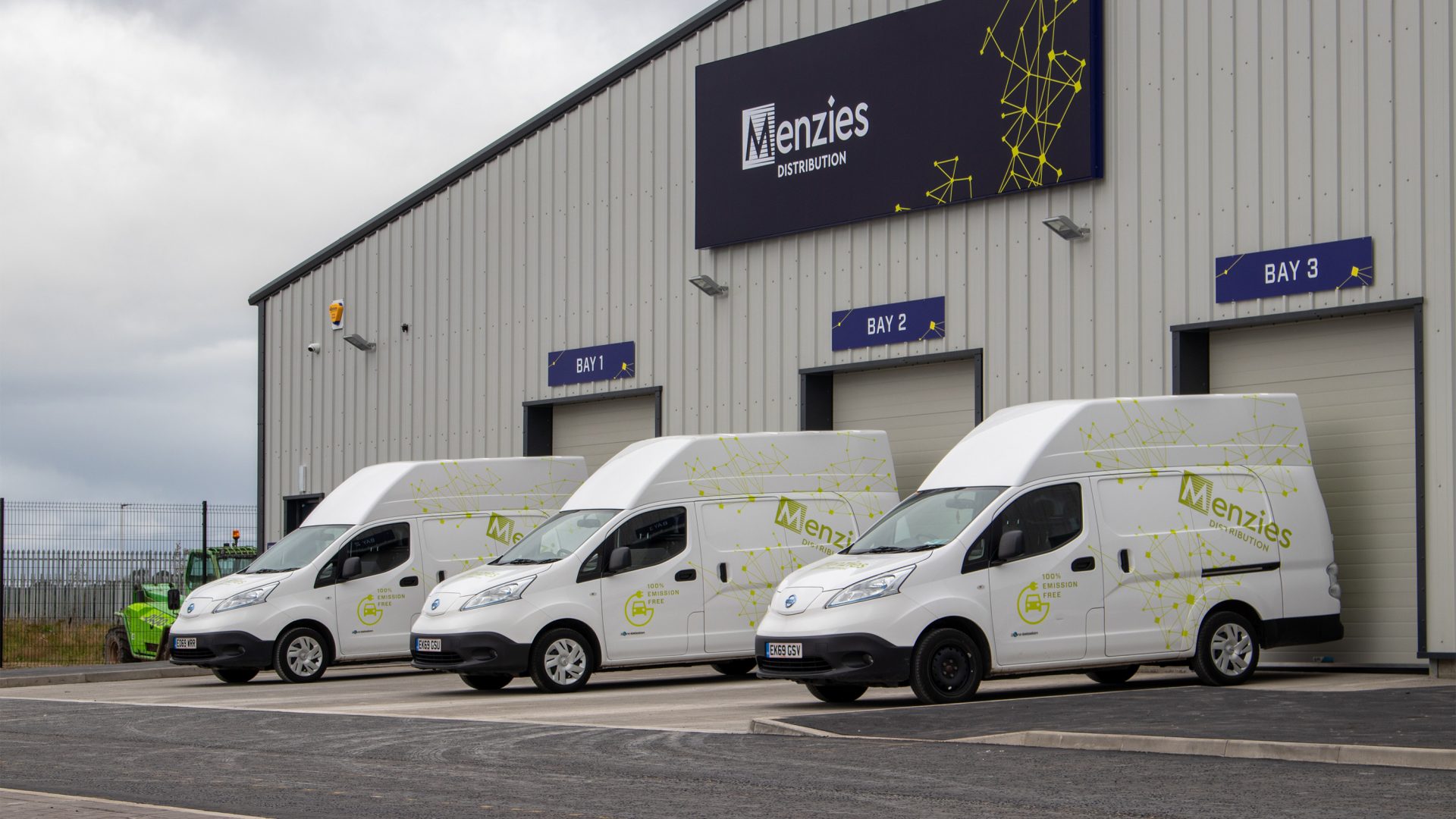

16 June 2022
Menzies Distribution, the award-winning UK logistics business, has announced plans to become net zero for Scope 1 and 2 emissions by no later than 2035 – 15 years ahead of the target date set under the Paris Agreement and in UK legislation.
The announcement marks a major milestone in the company’s long-standing commitment to hard-wire sustainable practices into every aspect of its business.
Scope 1 emissions are those produced directly by a business in its operations, such as the emissions from fuel usage in vehicles. Scope 2 are those made indirectly, in Menzies’ case, predominantly the electrical energy used to power offices and depots. In 2021 the business produced 90,459 tonnes of CO2e, with 90% coming from its vehicle fleet operations.
Menzies Distribution’s road to net zero will be founded on validated scientific targets under the international Science Based Targets initiative (SBTi). They will focus on a fleet strategy that delivers and evolves a decarbonisation strategy, minimising emissions through efficiency and optimisation, and maximising the use of clean fuels. The business will also improve resource management and recycling to support the circular economy. The targets, to be in place by the end of this calendar year, will provide a clearly defined path to reduce emissions in line with the Paris Agreement goals.
Menzies Distribution has a long history of action and innovation to minimise its environmental impact, including:
Greg Michael, Chief Executive Officer of Menzies, said:
“This is an important day for our company. We recognise the scale of the challenge, particularly given the nature of our business, but we also know it is the right thing to do for our own future, as well as for our customers, our people and the country as a whole. Success will not only depend on our own actions, but also on the development of new technologies and a partnership between the private sector and government. While there will be significant hurdles to overcome, we are determined to play our part in building the sustainable supply chains of the future.”